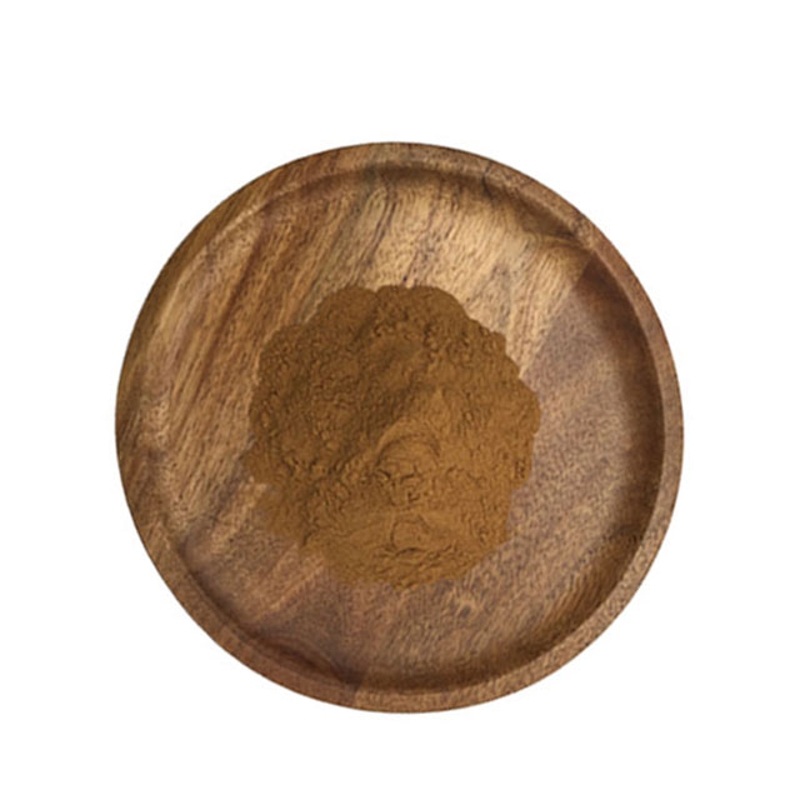-
Categories
-
Pharmaceutical Intermediates
-
Active Pharmaceutical Ingredients
-
Food Additives
- Industrial Coatings
- Agrochemicals
- Dyes and Pigments
- Surfactant
- Flavors and Fragrances
- Chemical Reagents
- Catalyst and Auxiliary
- Natural Products
- Inorganic Chemistry
-
Organic Chemistry
-
Biochemical Engineering
- Analytical Chemistry
- Cosmetic Ingredient
-
Pharmaceutical Intermediates
Promotion
ECHEMI Mall
Wholesale
Weekly Price
Exhibition
News
-
Trade Service
At 0:00 a.
m.
on January 11, 2022, Beijing time, Nature Cancer, a top international cancer biology journal, published online the latest results of the cooperation between the Drum Tower Hospital Affiliated to Nanjing University School of Medicine and the State Key Laboratory of Reproductive Medicine of Nanjing Medical University - "The cancer- testis lncRNA lnc-CTHCC promotes hepatocellular carcinogenesis by binding hnRNP K and activating YAP1 transcription”
.
Professor Sun Beicheng of Drum Tower Hospital Affiliated to Nanjing University School of Medicine, Professor Hu Zhibin of the State Key Laboratory of Reproductive Medicine of Nanjing Medical University, and Professor Wang Shouyu of Nanjing University School of Medicine are the co-corresponding authors.
Yuan Wenwen, a doctoral student at the Medical University, is the co-first author
.
Hepatocellular carcinoma (HCC) is one of the most common digestive tract malignancies
.
Currently, there are various treatment methods for HCC patients, such as surgical resection, liver transplantation and comprehensive therapy.
However, due to its high recurrence rate and metastasis rate, the overall survival rate of HCC patients is still not optimistic
.
Therefore, there is an urgent need to find new driving molecules in the occurrence and development of HCC, develop more effective treatment methods, and improve the prognosis of HCC patients
.
Cancer-testis (CT) gene is normally expressed only in testis tissue, but is silent in the rest of adult tissues
.
However, CT genes are reactivated during tumorigenesis, driving the malignant progression of tumors
.
This unique expression signature of CT gene makes it a potential tumor therapy target
.
In recent years, studies have found that long non-coding RNAs (lncRNAs) regulate the occurrence and development of various tumors by interacting with proteins or nucleic acids
.
However, lncRNAs are not highly conserved in the evolution of different species, which limits the study of the biological functions of lncRNAs in model animals (especially mice and primates)
.
Whether there are evolutionarily conserved lncRNAs (CT-lncRNAs) that conform to the CT gene expression characteristics deserves further study, and CT-lncRNAs may become new targets for predicting the malignant progression of tumors and new targets for the treatment of malignant tumors
.
Prof.
Sun Beicheng and Prof.
Wang Shouyu from Drum Tower Hospital Affiliated to Nanjing University School of Medicine and Prof.
Hu Zhibin's team from the State Key Laboratory of Reproductive Medicine, Nanjing Medical University, cooperated with the team of Prof.
Hu Zhibin from the State Key Laboratory of Reproductive Medicine, Nanjing Medical University to screen a new, super-conserved cancer-testis lncRNA using the TCGA and GTEx databases.
lnc-CTHCC, and using CRISPR-Cas9 technology, lnc-CTHCC knockout mice were constructed for the first time, and it was confirmed in a variety of mouse liver cancer models that lnc-CTHCC promotes the occurrence and development of mouse liver cancer
.
In addition, lnc-CTHCC significantly promoted the growth of HCC organoids in a human HCC organoid model
.
Mechanistically, the authors demonstrated for the first time that lnc-CTHCC can directly bind hnRNP K and recruit hnRNP K to the YAP1 promoter region to promote YAP1 transcription
.
METTL3-mediated m6A modification and IGF2BP1/IGF2BP3 recognize m6A sites on lnc-CTHCC, thereby maintaining lnc-CTHCC stability and increasing its expression in HCC
.
In HCC population samples, the authors found that lnc-CTHCC can be used as an independent indicator for judging the prognosis of HCC patients
.
The authors demonstrated that METTL3-IGF2BP1/IGF2BP3-lnc-CTHCC-hnRNP K-YAP axis plays an important role in the occurrence and development of HCC through cellular models and population samples, using a variety of molecular biological techniques
.
This study innovatively proposes that CT-lncRNA is a new target driving the occurrence of HCC, which will provide a new target for the personalized treatment of HCC
.
The work was jointly completed by researchers from Drum Tower Hospital Affiliated to Nanjing University School of Medicine and the State Key Laboratory of Reproductive Medicine of Nanjing Medical University, and was supported by the Ministry of Science and Technology and the National Natural Science Foundation of China
.
The research group of Professor Sun Beicheng from Drum Tower Hospital Affiliated to Nanjing University School of Medicine has long been engaged in the research on the occurrence of liver cancer and the immune microenvironment of liver cancer.
Reviews Clinical Oncology, 2021;18(5):261 has published a number of high-quality papers in succession.
Excellent doctors at home and abroad are welcome to join, and the treatment is generous
.
Contact: sunbc@nju.
edu.
cn Related paper information: https://
m.
on January 11, 2022, Beijing time, Nature Cancer, a top international cancer biology journal, published online the latest results of the cooperation between the Drum Tower Hospital Affiliated to Nanjing University School of Medicine and the State Key Laboratory of Reproductive Medicine of Nanjing Medical University - "The cancer- testis lncRNA lnc-CTHCC promotes hepatocellular carcinogenesis by binding hnRNP K and activating YAP1 transcription”
.
Professor Sun Beicheng of Drum Tower Hospital Affiliated to Nanjing University School of Medicine, Professor Hu Zhibin of the State Key Laboratory of Reproductive Medicine of Nanjing Medical University, and Professor Wang Shouyu of Nanjing University School of Medicine are the co-corresponding authors.
Yuan Wenwen, a doctoral student at the Medical University, is the co-first author
.
Hepatocellular carcinoma (HCC) is one of the most common digestive tract malignancies
.
Currently, there are various treatment methods for HCC patients, such as surgical resection, liver transplantation and comprehensive therapy.
However, due to its high recurrence rate and metastasis rate, the overall survival rate of HCC patients is still not optimistic
.
Therefore, there is an urgent need to find new driving molecules in the occurrence and development of HCC, develop more effective treatment methods, and improve the prognosis of HCC patients
.
Cancer-testis (CT) gene is normally expressed only in testis tissue, but is silent in the rest of adult tissues
.
However, CT genes are reactivated during tumorigenesis, driving the malignant progression of tumors
.
This unique expression signature of CT gene makes it a potential tumor therapy target
.
In recent years, studies have found that long non-coding RNAs (lncRNAs) regulate the occurrence and development of various tumors by interacting with proteins or nucleic acids
.
However, lncRNAs are not highly conserved in the evolution of different species, which limits the study of the biological functions of lncRNAs in model animals (especially mice and primates)
.
Whether there are evolutionarily conserved lncRNAs (CT-lncRNAs) that conform to the CT gene expression characteristics deserves further study, and CT-lncRNAs may become new targets for predicting the malignant progression of tumors and new targets for the treatment of malignant tumors
.
Prof.
Sun Beicheng and Prof.
Wang Shouyu from Drum Tower Hospital Affiliated to Nanjing University School of Medicine and Prof.
Hu Zhibin's team from the State Key Laboratory of Reproductive Medicine, Nanjing Medical University, cooperated with the team of Prof.
Hu Zhibin from the State Key Laboratory of Reproductive Medicine, Nanjing Medical University to screen a new, super-conserved cancer-testis lncRNA using the TCGA and GTEx databases.
lnc-CTHCC, and using CRISPR-Cas9 technology, lnc-CTHCC knockout mice were constructed for the first time, and it was confirmed in a variety of mouse liver cancer models that lnc-CTHCC promotes the occurrence and development of mouse liver cancer
.
In addition, lnc-CTHCC significantly promoted the growth of HCC organoids in a human HCC organoid model
.
Mechanistically, the authors demonstrated for the first time that lnc-CTHCC can directly bind hnRNP K and recruit hnRNP K to the YAP1 promoter region to promote YAP1 transcription
.
METTL3-mediated m6A modification and IGF2BP1/IGF2BP3 recognize m6A sites on lnc-CTHCC, thereby maintaining lnc-CTHCC stability and increasing its expression in HCC
.
In HCC population samples, the authors found that lnc-CTHCC can be used as an independent indicator for judging the prognosis of HCC patients
.
The authors demonstrated that METTL3-IGF2BP1/IGF2BP3-lnc-CTHCC-hnRNP K-YAP axis plays an important role in the occurrence and development of HCC through cellular models and population samples, using a variety of molecular biological techniques
.
This study innovatively proposes that CT-lncRNA is a new target driving the occurrence of HCC, which will provide a new target for the personalized treatment of HCC
.
The work was jointly completed by researchers from Drum Tower Hospital Affiliated to Nanjing University School of Medicine and the State Key Laboratory of Reproductive Medicine of Nanjing Medical University, and was supported by the Ministry of Science and Technology and the National Natural Science Foundation of China
.
The research group of Professor Sun Beicheng from Drum Tower Hospital Affiliated to Nanjing University School of Medicine has long been engaged in the research on the occurrence of liver cancer and the immune microenvironment of liver cancer.
Reviews Clinical Oncology, 2021;18(5):261 has published a number of high-quality papers in succession.
Excellent doctors at home and abroad are welcome to join, and the treatment is generous
.
Contact: sunbc@nju.
edu.
cn Related paper information: https://







